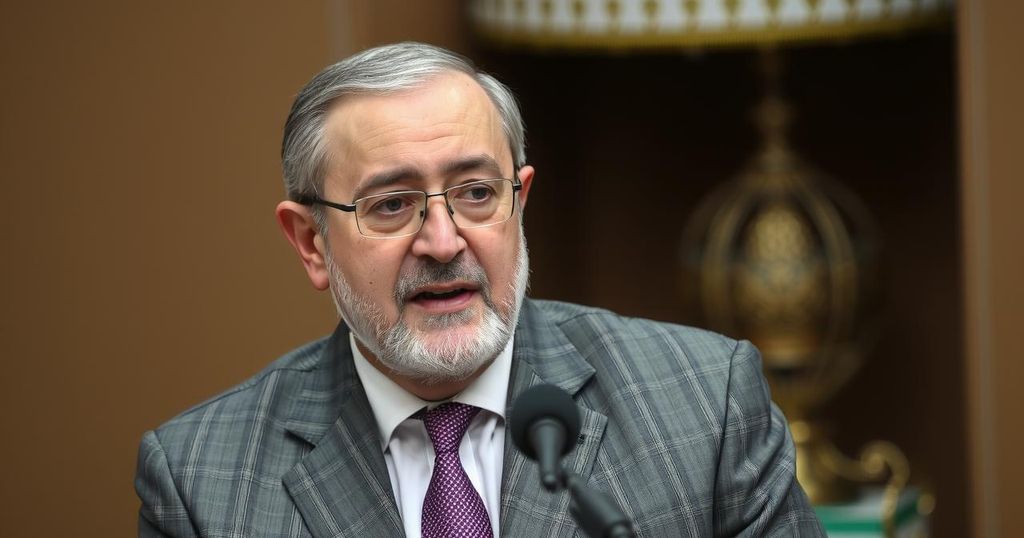Syrian Elections May Be Delayed Four Years as Interim Government Rebuilds Nation
Ahmad al-Sharaa, the de facto leader in post-Assad Syria, stated that elections might take up to four years to organize due to the need for extensive preparations and a new constitution. His government plans to dissolve during a National Dialogue Conference, while he seeks to establish international legitimacy and strengthen relations with regional partners, particularly Saudi Arabia. High-level diplomatic engagements signal a shift from isolation toward collaboration since the regime’s fall.
In a significant announcement, Ahmad al-Sharaa, the de facto leader of Syria following the ousting of Bashar al-Assad, indicated that elections may not materialize for up to four years due to the need for extensive preparatory work. He emphasized the interim government’s commitment to drafting a new constitution, a process expected to span three years, aiming to reconstruct a nation deeply affected by decades of authoritarian rule. Al-Sharaa noted, ‘We are now in the re-foundation of the country and not just managing the country… there is a lot of destruction in the country because of a regime that ruled for more than 50 years.’
Furthermore, he stated intentions for the interim authority to dissolve at an upcoming National Dialogue Conference, details of which are yet to be disclosed. Relations with Russia were addressed, with Al-Sharaa expressing a desire for Russia to maintain a considerate presence in Syria, amidst reports of troop withdrawals following the regime’s collapse. His leadership is underscored by a push for international legitimacy, as demonstrated by high-level meetings with foreign dignitaries from countries including Ukraine and the United States, the latter of which has recently lifted a bounty on him.
Al-Sharaa’s evolving diplomatic style reflects an effort to distance himself from his past affiliations with jihadist groups, indicating a willingness to engage constructively with regional powers such as Saudi Arabia. He articulated that old patterns of international isolation are being abandoned in favor of collaboration and dialogue with various nations. “We are folding the old page of boycotts that [Syria] was under with the old regime,” said Asaad Shaibani, Syria’s interim foreign minister, highlighting the changing dynamics in Syria’s foreign relations.
The political situation in Syria has undergone a dramatic transformation following the recent violent overthrow of the Assad regime. This upheaval has left the interim government, led by Ahmad al-Sharaa, tasked with reconstruction, both physically and politically. An essential part of this process is the establishment of a new constitutional framework and the preparation for democratic elections, both of which are complex and time-consuming tasks. The interplay of regional powers, particularly with the involvement of Russia and Gulf states, complicates the transitional dynamics further. Additionally, the international community observes this evolving leadership, assessing the implications for future cooperation and stability in the region.
Ahmad al-Sharaa’s leadership marks a pivotal turn in Syria’s path toward potential democratic governance, with significant emphasis on rebuilding a nation scarred by years of tyrannical rule. The timeline for elections extends up to four years, primarily due to the essential groundwork needed to support a stable political transition. His diplomatic efforts reflect an intent to forge new relationships while signaling a departure from a divisive past. As these developments unfold, the effectiveness of the interim government’s strategy will be closely scrutinized on both domestic and global stages.
Original Source: www.cnn.com




Post Comment